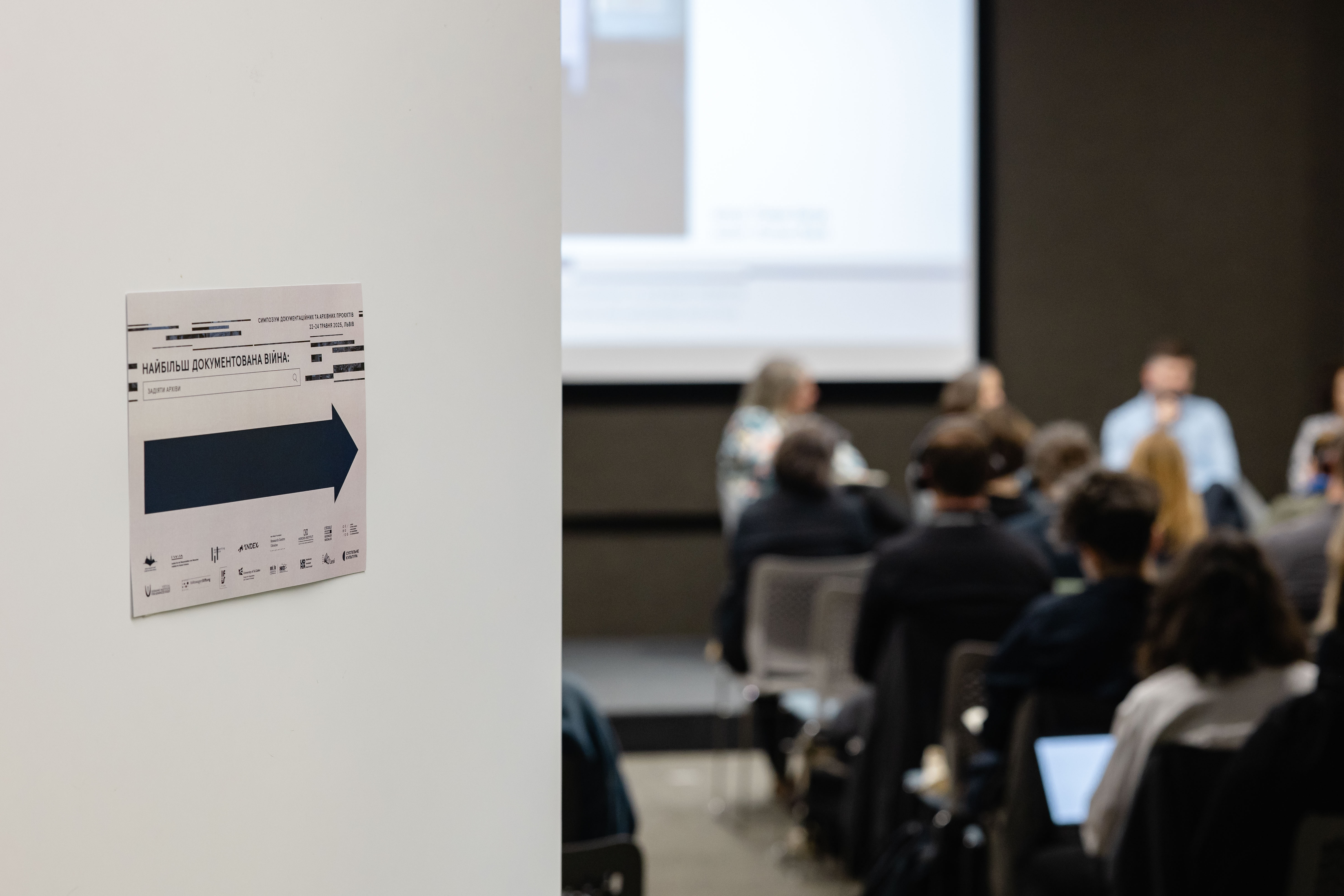The symposium opened with a panel titled “Documents, Infrastructures, Communities: What Will We Call the “Archive of War?”, moderated by IWM Permanent Fellow Katherine Younger, which focused on various ways in which war is re-shaping the “archive” as a conceptual framework. It also connected experts coming from independent initiatives with state actors to discuss forms of interaction between state archival infrastructure and wider documentation communities. Panelists discussed archives not only as an entity rooted in history, but also as a product of the technological moment. Taras Nazaruk, who is currently developing the Telegram Archive of War at the Center for Urban History in Lviv, shared his experience of working with a social media archive that, similarly to many archival initiatives that emerged after 24 February 2022, cannot be formally considered an archive and doesn’t have a pre-established methodology but is rather shaping a new methodology to fit the materials and technology at issue.
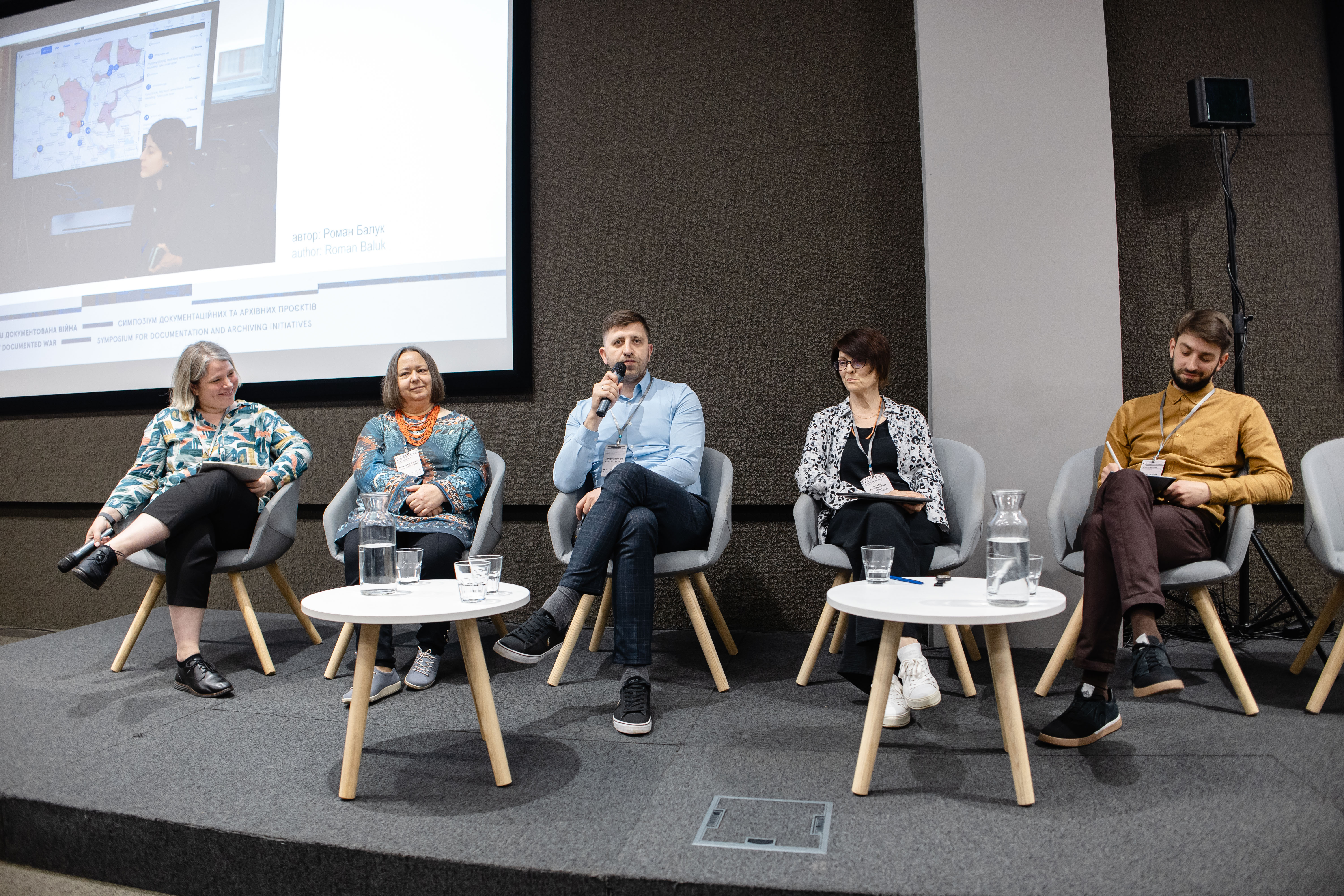
© Center for Urban History/Bohdan Yemets
The panel was informed by experts from different disciplines, who brought forward varied perspectives on archiving and responsibility that archives have towards the present and future. For example, Alina Doboszewska, representing Fundacja Dobra Wola, an NGO promoting social sciences in non-formal education, spoke about the relation between oral history and archiving, and how they contribute to memory construction. Even a small interview project can play an important role in granting voice to those groups who were previously denied it.
The second panel, “Where Archives Reside: Preserving and Enacting Collected Materials”, invited its participants to reflect on ethical and political questions that inform the decision of “placing” archives. In this context, remarks from Jelnar Ahmad, Syrian Archive Program Manager at Mnemonic, were especially valuable. She shared her insights into documenting human rights violations in Syria after the Arab Spring protests and the civil war that followed. Ahmad vocalized how activists did the vital work of preserving open-source data on the conflict that became more and more inaccessible to traditional journalists and scholars. Fedir Polianskyi, Director of the State Archive of Ternopil Oblast, spoke about how state archives ensure safety of their collections during war and how they protect the families of Ukrainian military personnel who share their stories with the archive.
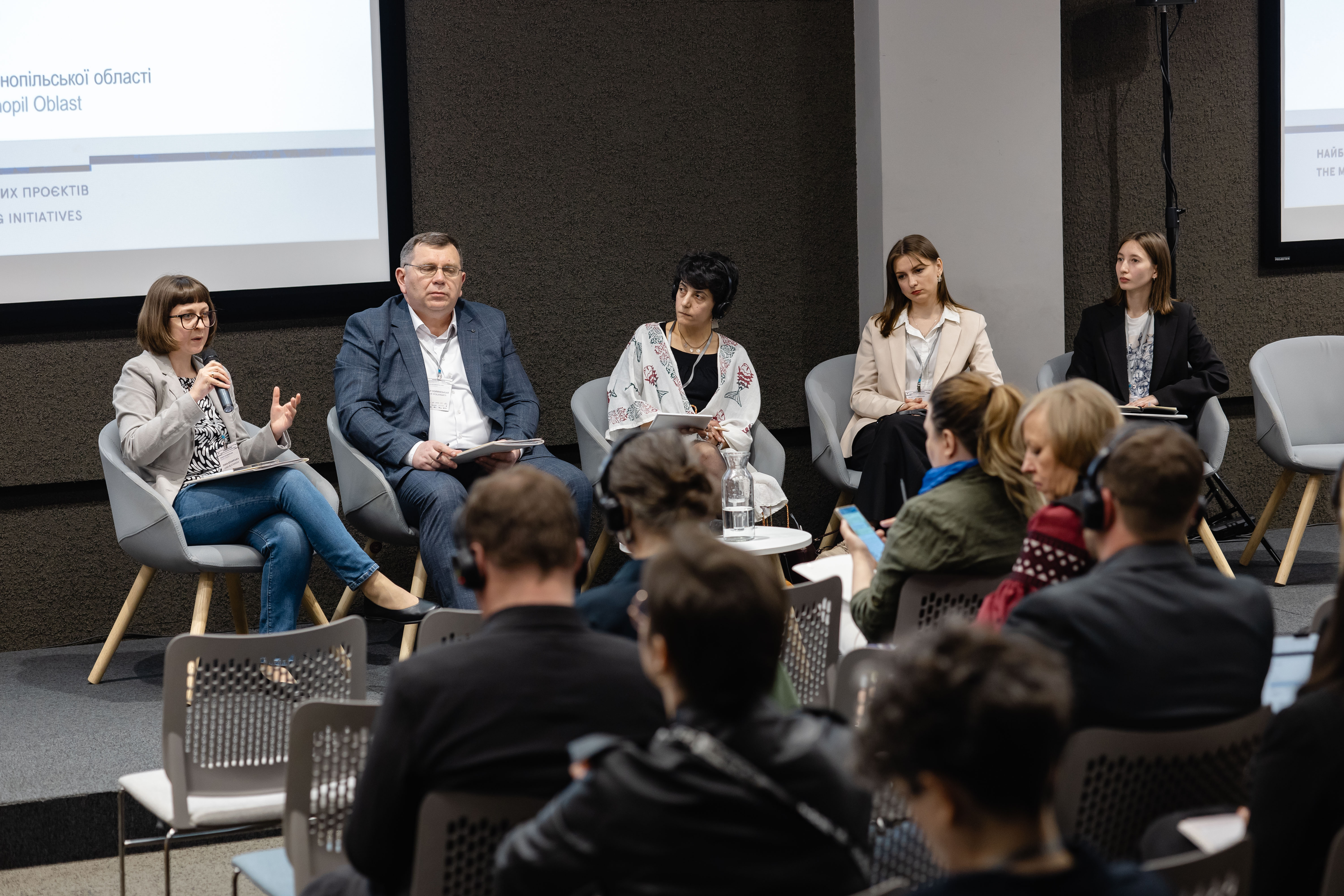
© Center for Urban History/Bohdan Yemets
Olena Kuk reflected on the ethics of wartime archiving by talking about the work of Svidok.org, a repository for personal accounts of the Russo-Ukrainian war. Since the platform offers its users a more vulnerable diaristic approach to documentation, the anonymity and safety of users becomes a priority. Svitlana Dovhan, representing Post Bellum Ukraine, expressed her concerns about striking a balance between advocacy and maintaining interviewees’ trust.
The panel “From Document to Argument: The Archive as an Instrument of Justice” aimed to address the pressing issue of the possibility of transforming war testimonies into evidence for international courts. Nataliya Gumenyuk, journalist and co-founder of Public Interest Journalism Lab and The Reckoning Project, spoke about different modes of justice as a guiding principle in journalistic work. She shared how for many victims of war crimes acknowledgement of their stories can mean just as much, if not more, than legal justice per se. While criminal cases can be a lengthy and bureaucratically complicated process, storytelling can take away the narrative power from the perpetrator and emancipate the victim. Anne Le Huérou, a sociologist researching the Chechen wars, explained how the invisibility and lack of agency of Chechen people during the conflict started a chain of impunity for Russian perpetrators. She emphasized the question of memory construction over justice in front of the court, due to Russia's continuous efforts to erase memory in Chechnya.
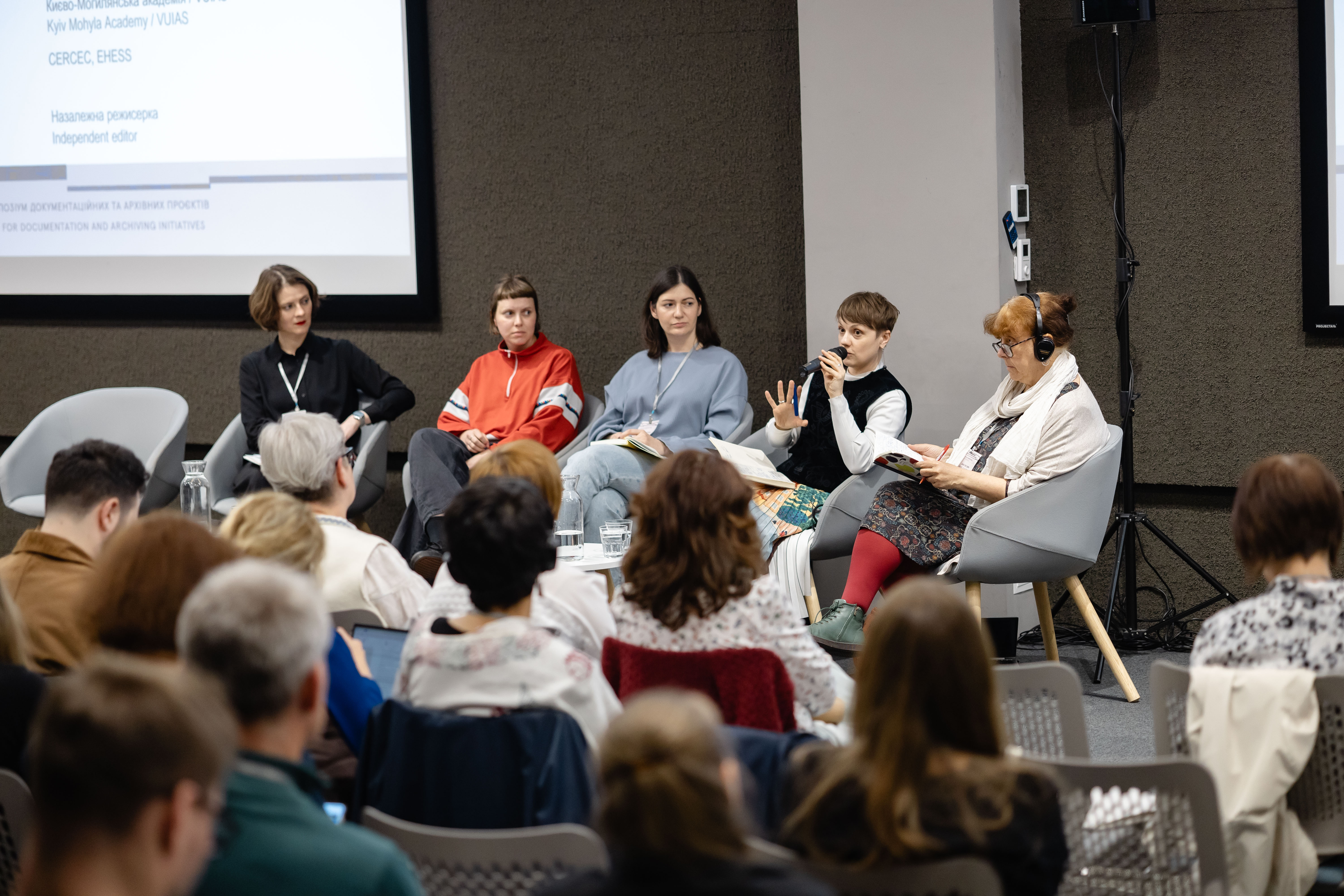
© Center for Urban History/Bohdan Yemets
The second day of the Symposium began with a panel titled “Between the Price and Value: Risks and Threats to War-Time Documents”. It focused on working with heritage during wartime. In such traumatic circumstances, preservationists should not only be concerned with the quality and quantity of materials collected and filling the gaps in the overall wartime narrative, but also on the psychological consequences of producing such testimonies, both for researchers and witnesses. Pavlo Leno, ethnographer at Uzhhorod National University, shared his experience of interviewing internally displaced persons in Zakarpattia, and how it informed his perspective on the full-scale invasion as someone who lives so far away from the active fighting zone. Kateryna Zelenska of the Donetsk Regional Museum of Local History defined museum as a space for solidarity and commemoration and explained how it can offer solace to the community. Researcher Nena Močnik attempted to translate her experience of working with survivors of sexual violence during the Bosnian War to the Ukrainian context. She explained the importance of coping with transmitted trauma and how to process complex emotions as a researcher.
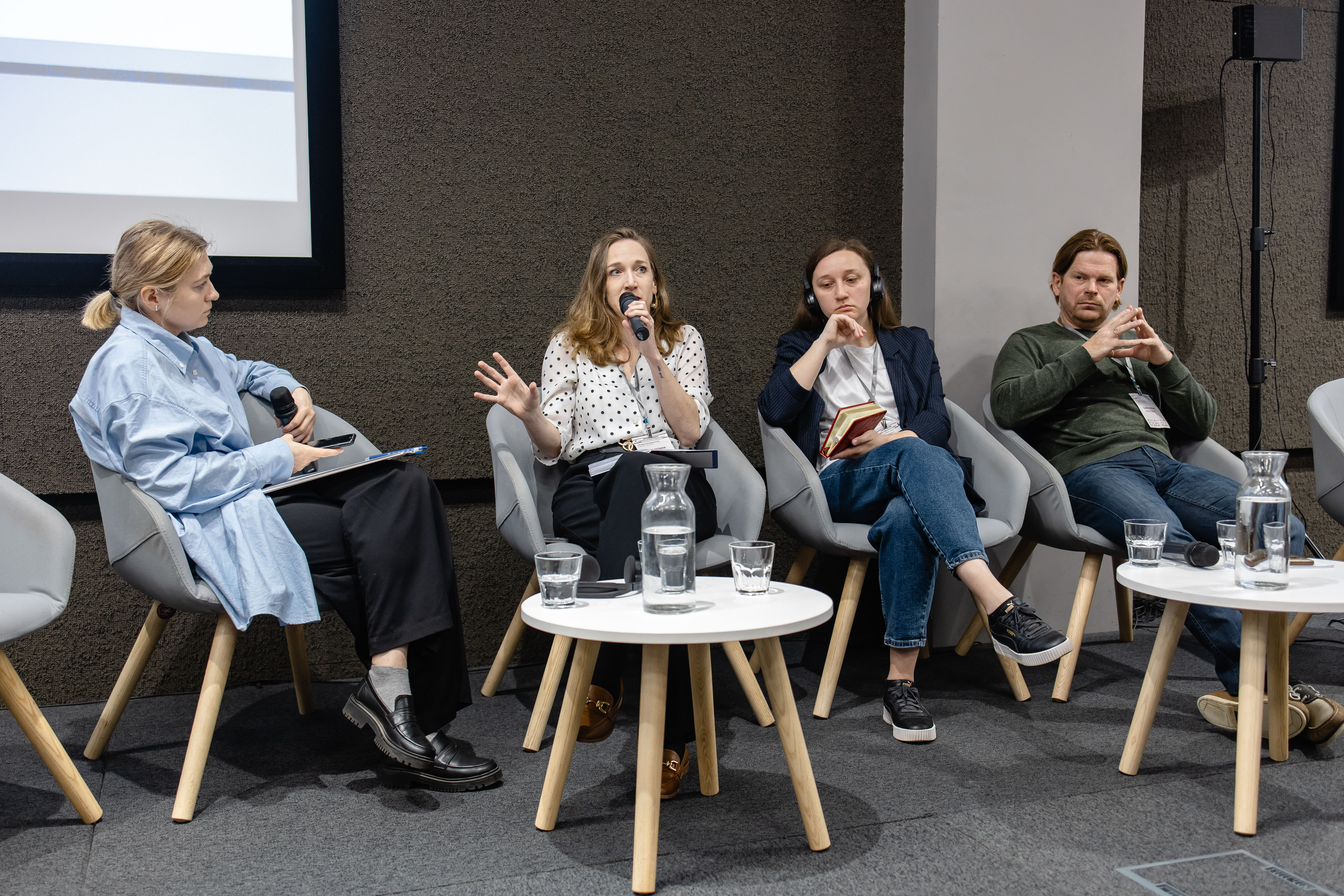
© Center for Urban History/Bohdan Yemets
The panel “(In)visibility: Ways of Opening Up Archives” continued the exploration of ethical considerations of archives. It challenged the fragile line between ensuring the visibility of collected materials and protecting the identities of people featured in said materials. This issue is particularly pressing considering the growing influence of tech oligarchs, social media and generative AI in politics and society. Johana Kotišová, media researcher at the University of Amsterdam, and Svitlana Odynets, anthropologist at Northumbria University, agreed on the idea of the human body as an archive, which carries experiences from the past to the future. The Russian state apparatus is well aware of that, and hence they introduce practices of filtration and surveillance. Kotišová also reflected on modes of knowledge production in Western academia, which outsource risk and empathy to Ukrainian academics already in constant danger. Photographer Sasha Maslov shared how the code of conduct for photographers and editors constantly evolves and how they deal with picturing victims in their bare existence.
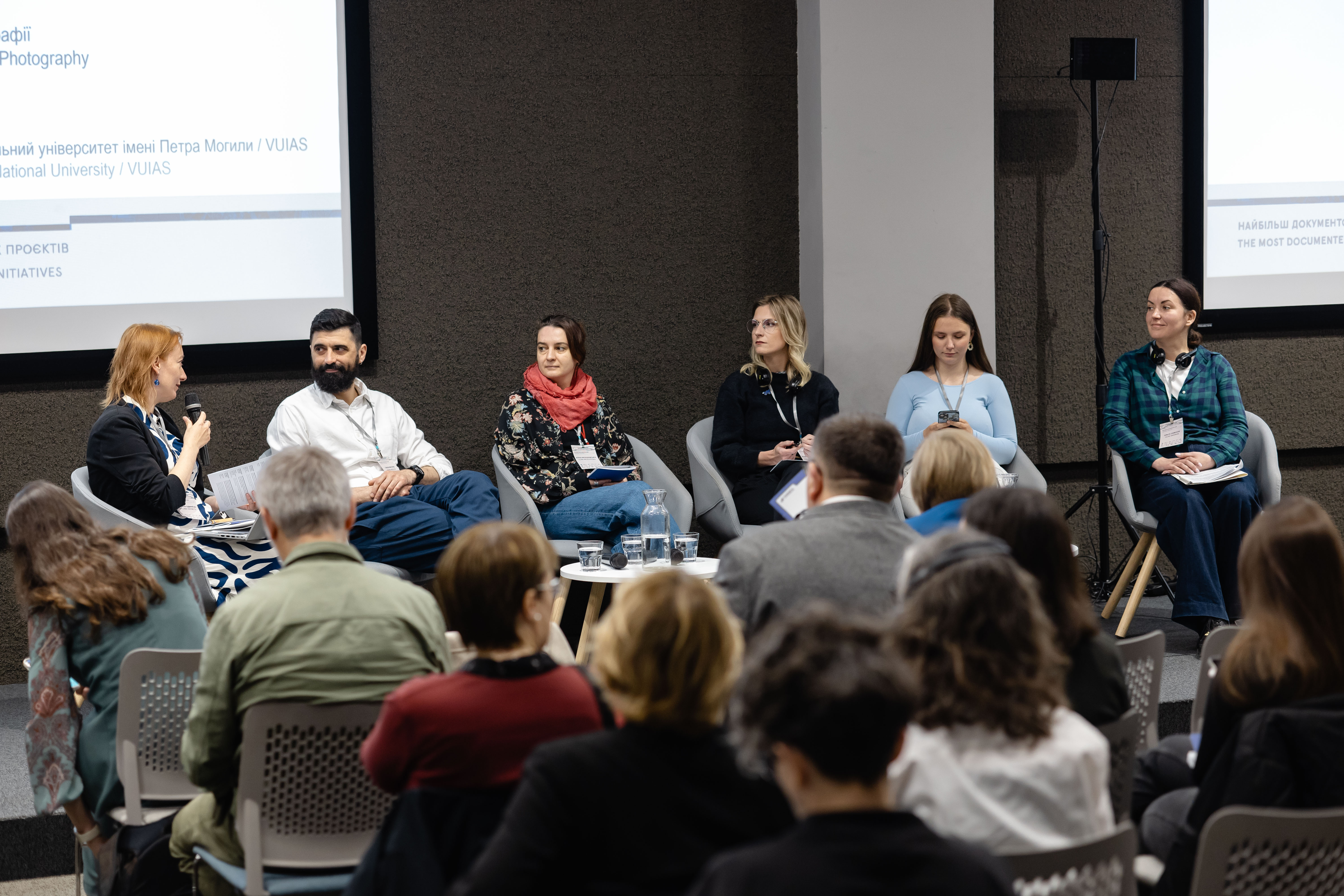
© Center for Urban History/Bohdan Yemets
The final panel of the Symposium, “In Wartime and After: Enabling Solidarity through Documenting”, tied together topics implied during previous discussions. It focused on the contribution of war documentation to the wider Ukrainian and international solidarity networks and advocacy efforts. The audience had the chance to hear from documentary photographer Oleksandr Glyadelov, whose understanding of solidarity stems from his substantial career as a war reporter and his work with Médecins Sans Frontières. Jan Claas Behrends from European University Viadrina focused on framing Ukraine as an independent actor deciding not only its own, but also the European future, and combatting the illusions of 1989. For Georgian lawyer Nikoloz Legashvili solidarity means action in the international legal arena, so that Russia is discouraged from doing more crimes.
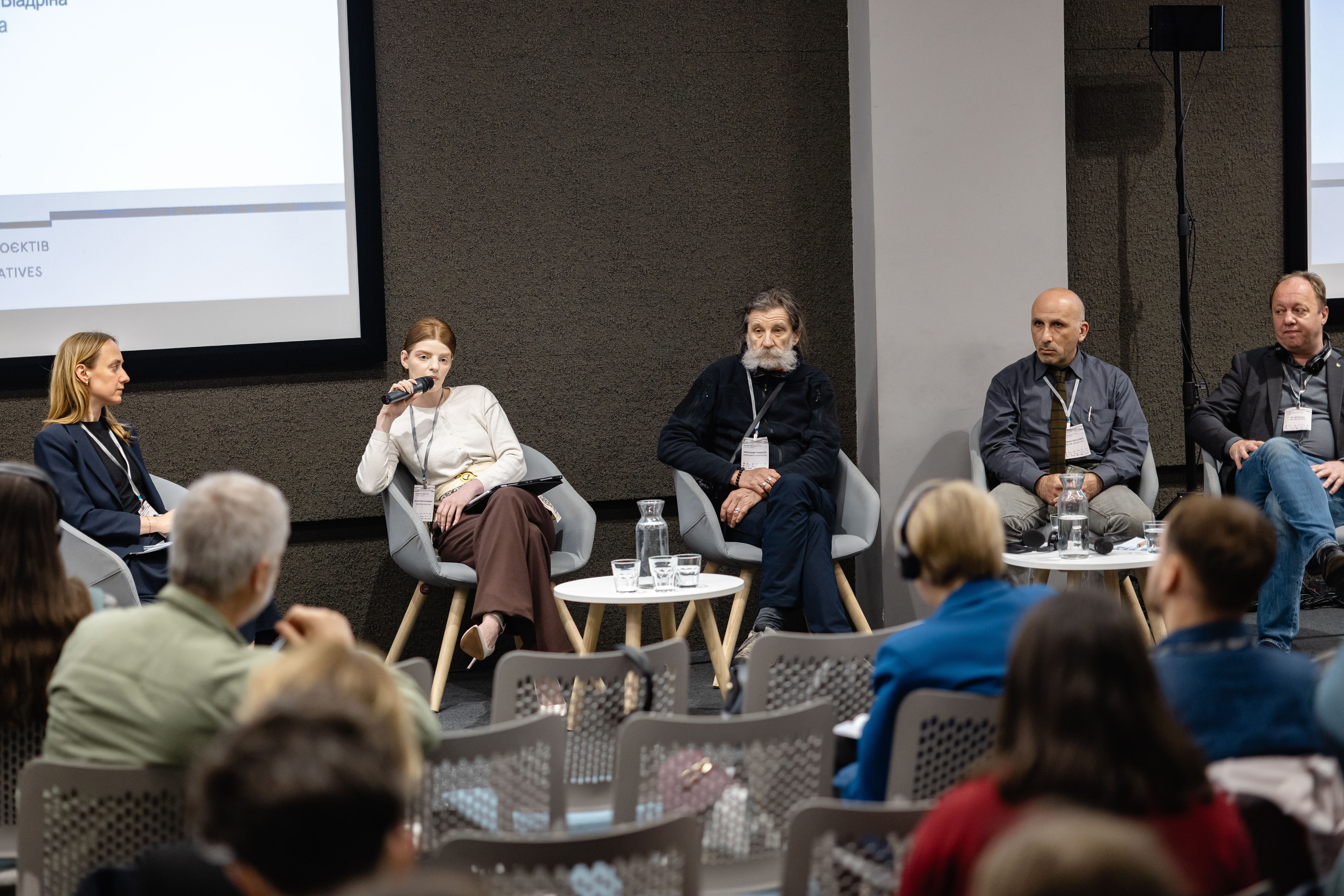
© Center for Urban History/Bohdan Yemets
To learn more about the framework of the Most Documented War Symposium, you can explore the main takeaways from the last year's edition titled “Ethics and Practice of International Collaboration”. A catalogue of documentation initiatives under the same name is accepting submissions here.

